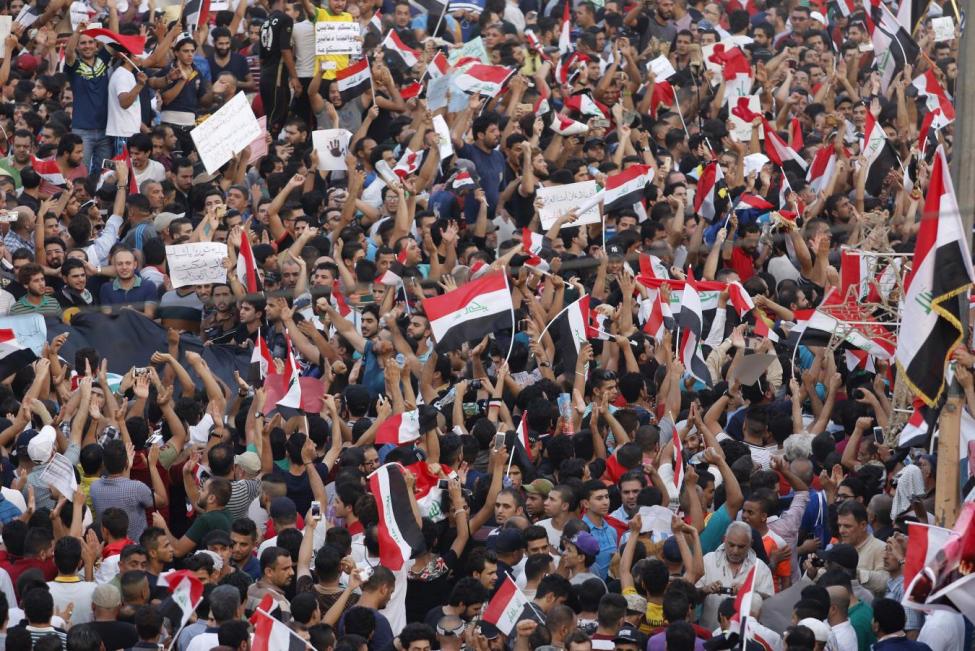Baghdad-Amid high temperature reaching 47 degrees Celsius, thousands of protestors accompanied by Shi’ite cleric Moqtada al-Sadr gathered in Tahrir Square. Sadr did not deliver the speech himself despite his presence among the protestors.
Protestors called on an end to corruption and the unity among Shi’ite and Sunni Iraqis. They chanted “No, no to corruption. No, no to sectarianism. Yes, yes to reform. Yes, yes to Iraq”.
Demands included dismissing all corrupt individuals and submitting them to a fair trial as quick as possible. Sadr called for avoiding political pressures and for working independently.
Activist Mohamed Al-Daradji stated in Cairo that corruption has become unbearable, adding that those who ruled after Saddam Hussein in 2003 have failed. Another participant named Mushtaq Al-Awadi, 54 years old, said that this protest is to demand returning the stolen money to Iraqis, calling to account corrupt officials and terminating sectarianism.
Hakim al-Zamili, an Iraqi politician from the Sadrist Movement, told Asharq Al-Awsat newspaper that Friday’s protest led by Sadr is a continuation of previous ones that had the same purposes. Zamili urged the state to fulfill its pledges.
Judge and Former Minster Wael Abdul Latif also told Asharq Al-Awsat newspaper that reformation was the keyword of Sadr’s speech. “Sadr’s main focus is maintaining peaceful protests and issuing national, unified slogans and most importantly changing elections’ commissariat.”
Iraqi Prime Minister Haider al-Abadi called for forming a government of competent members in February but was greatly opposed by political parties.
Furthermore, the parliament approved on 26 April dismissing five ministers and appointing five others within a governmental reformation program, suggested by Abadi, but the court later on abolished the resolutions of this session.
